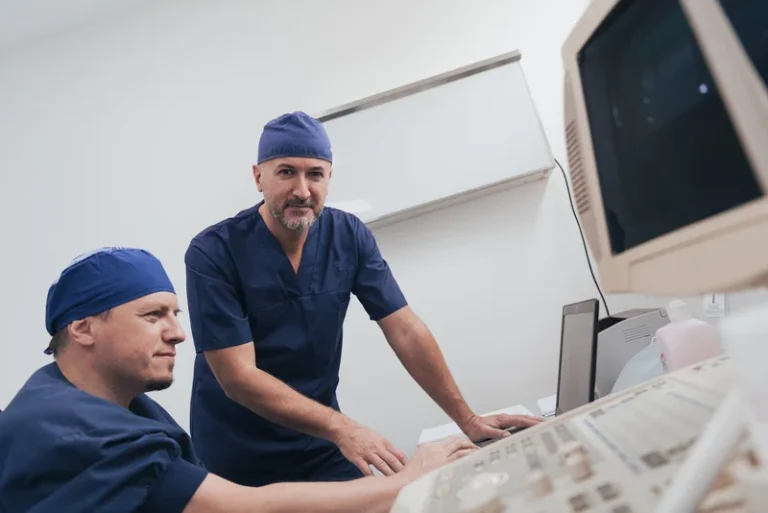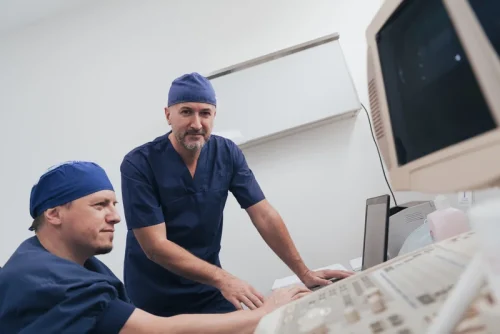Meditation for Addiction: Definition, Types, Application, Benefits, and Efficacy

Addiction can impact every aspect of a person’s life, from their physical health to their mental well-being and social interactions. Substance abuse treatment services should be comprehensive, addressing both the physical dependence and the underlying psychological and emotional factors contributing to the disorder. Both approaches promote accountability, self-reflection, and community support, but the key difference lies in the philosophy behind personal growth and healing. Some individuals find comfort and motivation in spiritual guidance, while others prefer a practical, self-directed framework that relies on behavioral therapy and psychological principles. A treatment center will attempt to verify your health insurance benefits and/or necessary authorizations on your behalf. We cannot guarantee payment or verification eligibility as conveyed by your health insurance provider will be accurate and complete.
Don’t Wait. Healing is a Phone Call Away.
Mindfulness and meditation are invaluable tools for those in addiction recovery. By fostering self-awareness, emotional regulation, and resilience, these addiction meditation kundalini practices can empower individuals to navigate the complexities of recovery with grace and strength. Whether new to mindfulness or looking to deepen your existing practice, remember that every moment spent cultivating awareness is a step toward healing.

The Role of Dialectical Behavioral Therapy in Treating Substance Abuse

There are so many more self-care strategies for people in recovery who want to avoid loneliness and boredom. Staying connected in recovery with like-minded people can also give you more ideas for staying busy. Ultimately, finding purpose in recovery should be a priority if you are struggling with loneliness.
The Benefits of Joining a Recovery Community
- Discover how to cleanse & detox your liver from alcohol with natural remedies, diet, and medical treatments.
- By enhancing self-awareness, meditation supports proactive strategies for managing triggers effectively.
- By using mindfulness exercises cultivating greater awareness of their thoughts and emotions, individuals can start recognizing patterns of thinking and behavior that may contribute to addiction.
- Consider an individual with cocaine use disorder in full remission who practices mindful savoring when his grandchildren visit on the weekend.
- Explore spiritual recovery’s role in addiction healing, its benefits, challenges, and practical practices.
- These interventions create a supportive environment where self-compassion is cultivated, helping individuals develop a foundation for long-term recovery while navigating the challenges of substance use disorders.
- The interplay between mindfulness, brain health, and emotional regulation underscores the critical role these practices can play in overcoming addiction.
Meditation and mindfulness stand as beacons of hope and transformation in addiction recovery. These practices empower individuals with the tools to navigate the complexities of their emotions and experiences without resorting to substance use. By fostering a mindful and structured approach to wellness, individuals can achieve lasting recovery and emotional well-being.
- Meditation also stimulates the release of feel-good hormones like serotonin, which improve mood, reduce stress, and promote better sleep.
- As both empirical evidence and personal narratives show, the integration of mindfulness into daily routines fosters resilience, reduces cravings, and encourages a nonjudgmental approach to thoughts and emotions.
- These programs provide age-appropriate therapy, family counseling, and academic support to help teens recover while continuing their education.
- These programs vary in structure, treatment approaches, and specialized care options to provide the most effective recovery experience.
Mindfulness helps us build connections by teaching us to view ourselves and others through the lens of compassion. We let go of the judgments, stereotypes, and prejudices that build walls and practice the tolerance, kindness, and empathy that build bridges. They’re just sort of there, like background noise we’ve learned to tune out. While we have outlined one basic philosophy / form of meditation in the links below, if you already have a proven meditation technique — then we encourage you to combine & enhance it with our audio technology. EquiSync uses sound to deepen the meditative state no matter your chosen technique.

This approach helps you understand your inner experience without judging it. When drug treatment programs don’t seem to help your daughter, discover alternative strategies for support. Explore spiritual recovery’s role in addiction healing, its benefits, challenges, and practical practices. Mindfulness practices cultivate a moment-to-moment, nonjudgmental awareness of thoughts, feelings, and surroundings.
- Practices such as mindfulness and loving-kindness encourage self-compassion and ground individuals in the present, making it easier to handle life’s challenges without resorting to past substances.
- You may consider whether you want to do this meditation daily on your own or sometimes attend local meditation classes or use a guided meditation.
- To practice mindfulness, you simply pay attention to whatever is happening in the present moment from a place of compassion, curiosity, and nonjudgment.
- Studies have demonstrated that meditation and behavioral therapies are useful techniques for decreasing stress and anxiety, which can help individuals in addiction recovery manage these triggers and emotions.
- Meditation has emerged as a promising complementary therapy for the treatment of substance use disorders.
- These two factors are vital for maintaining sobriety, as stress often triggers cravings and negative emotional states can lead to relapse.
Effective, lifelong recovery starts by treating the whole person, not just the substance use disorder. This means treating the underlying mental health issues at the root of addiction and providing patients with tools they need for a healthier, more satisfying life. «Mindfulness isn’t difficult, we just need to remember to do it,» wrote the meditation teacher Sharon Salzberg. By remembering to take part in these mindfulness practices every day, our journey of recovery can become ever deeper, more meaningful, and more rewarding.
- Positive emotions through mindfulness meditation or mindfulness based interventions are effective treatments as a relapse prevention strategy.
- Explore Lollapalooza and its connection to alcohol, from policies to drinking behaviors and safety strategies.
- It’s characterized by the compulsive use of substances despite harmful consequences.
- Medication-Assisted Treatment (MAT) combines FDA-approved medications with therapy to treat opioid and alcohol addiction.
- Yoga incorporates a blend of physical postures, breathing techniques, and meditation practices that aim to enhance physical and mental health.
Evidence Based
Yoga incorporates a blend Halfway house of physical postures, breathing techniques, and meditation practices that aim to enhance physical and mental health. The physical practice of yoga can help individuals reduce stress and anxiety, while the meditation and breathing exercises can help individuals develop greater self-awareness and regulate their emotions more effectively. Some treatment centers offer mindfulness-based relapse prevention therapy as part of their treatment programs. Developing these and other mindfulness skills can help people reduce addictive behaviors and improve emotional regulation. According to the Pew Research Center, in 2014, 40% of U.S. adults practiced a form of meditation at least once a week, 8% meditated once or twice a month, and 4% meditated several times a year.

Does Drinking Alcohol Cause Acne?
Las Vegas offers a broad spectrum of addiction treatment programs designed to address various types of substance abuse, including alcohol, opioids, stimulants, and prescription drugs. The city’s reputation as a luxury addiction treatment hub is built on its ability to provide both high-end inpatient and outpatient programs. Using meditation as cognitive behavioral therapy as a complementary therapy can improve recovery outcomes by providing additional tools for managing stress, regulating emotions, and developing greater self-awareness. By integrating meditation, cognitive behavioral therapy, and motivational enhancement therapy into an addiction treatment plan, individuals can develop a more holistic and comprehensive approach to recovery.
How does meditation help reduce cravings and enhance emotional self-regulation?
However, some luxury rehabs accept employer insurance, making premium alcohol addiction treatment more accessible. Our CARF-accredited, family-owned center provides a structured, individualized approach that blends the 12-step philosophy with modern therapeutic techniques, ensuring you receive the best possible care. With a highly qualified team of licensed therapists, addiction specialists, and peer mentors, every individual receives professional, empathetic support tailored to their unique recovery journey. Addiction to stimulants like cocaine and methamphetamine leads to intense physical and psychological dependence. According to NIDA, stimulant use disorders in North Carolina have been on the rise, with a 25% increase in reported cases in recent years. The Carolina Center for Recovery focuses on holistic recovery approaches combined with 12-step programs to help individuals overcome stimulant addiction.



